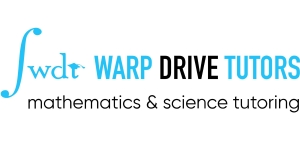Sixth Term Entrance Paper (STEP 1, STEP 2 and STEP 3)
Some Basics:
Possibly the most infamous school-aged examination of all time, most professional mathematicians still break out in a cold sweat remembering their STEP exams. This examination paper is required for students applying to study mathematics at Cambridge (STEP 2 or 3), Warwick (STEP 1) and some other universities. Each paper is 3 hours with no calculators allowed, and students can choose to sit one, two or all three papers. There is no formula booklet, so although most of the content overlaps with A level, formulae need to be memorised (or derived 😉) for these most challenging of papers.
Topics usually covered include:
- STEP 1: content of A level Mathematics, proof by induction, remainder theorem, roots, rational functions, limits, circle theorems, combinatorics, general solutions to trig equations, logarithm change of base formula, higher order derivatives, centre of mass, Forces in 3-d, combinatorial arguments to calculate probabilities, discrete uniform distribution, standard normal distribution
- STEP 2: as above, content of Pure Mathematics 1 option in the Further Mathematics A Level, top-heavy algebraic fractions, exponential expansion, sketch ellipses, reduction formulae, algebraic manipulation of vectors, energy, work, power, coefficient of restitution, impact, Hooke’s law, elastic potential energy, Poisson distribution, normal as approximate, calculus of cdf and pdf
- STEP 3: as above, content of Pure Mathematics 2 option in the Further Mathematics A level, lengths of curves, transforming differential equations, impulse, locating centre of mass, circular motion, algebra of expectation
Typical problem areas include:
Umm… honestly…. These papers are designed to determine if you are capable of studying the most demanding and prestigious mathematics undergraduate degree in the world. The entire paper is a problem area! In all seriousness, many of the problems are not actually as difficult as they first appear. The paper uses the notation and formatting academics would use in mathematics research papers, and much of the difficulty lies in figuring out what the question is actually asking of you.
How a tutor can help:
Most maths teachers are not comfortable with STEP papers, and even in schools that offer STEP classes, it is not uncommon for the teacher to need to prepare every question in advance. Our highly qualified tutors can support your learning more flexibly and offer key insights and strategies to tackle these papers. Crucially, the options structure of Further Maths A Level means that students no longer cover all of the material needed for STEP as a matter of course, and any student not taking the Pure Mathematics 1 module will need to learn a significant amount of content beyond the Further Maths A Level course. Of course, independent learning is a valuable skill to develop in students, but STEP questions demand complete mastery of the material, and it is not always possible to achieve this when working on your own.
Warp Drive Tutors, Inc. has been developed independently from and is not endorsed by Cambridge Assessment International Education. A-Level, GCSE and iGCSE are registered trademarks owned by Cambridge Assessment International Education.
